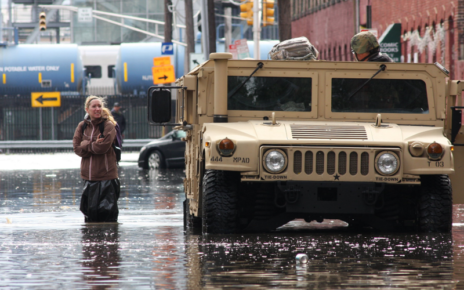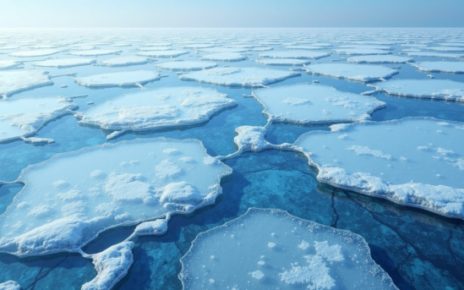What role will fresh water play on the global stage? More specifically, how will the scarcity of freshwater affect strategic decision-making, especially in Canada? With the dangers of climate change looming in everyday life – wildfires that devastated parts of Los Angeles are one prime example – it is important for countries to think about how their resources will be threatened and strained in this new world.
Canada is at the forefront of this discussion. It possesses around 20% of the world’s fresh water supply. Much of that water supply is concentrated in the five Great Lakes – Superior, Michigan, Huron, Erie, and Ontario – which are shared between the United States and Canada. As such, the world’s superpower and a close ally have direct control over what is soon to be one of the most valuable resources in a climate change-afflicted world.
The CBC reported changes to freshwater resources in the United States as the result of climate change. Last year, as the upshot of an unusually warm winter, the amount of fresh water stored in the snow-packed mountains of the United States has decreased substantially, by about 22%. The change in accessibility of freshwater reserves, such as from snow, has heightened awareness around the importance of fresh water in strategic planning. Such a decrease in fresh water reserves can have serious impacts on a state. As one academic succinctly distills it, not having proper access to fresh water reserves can cause “food insecurity, health issues, conflicts over control of water resources, migrations, land grabbing, lost social and economic opportunities, loss of bio diversity and ecosystem degradation.” As such, water scarcity will be a crucial problem facing states in the future.
This then raises two important questions: What are states doing to secure water supplies, and how can Canada leverage its freshwater potential?
In 2024, the Government of Canada committed to investing $750 million dollars to protect the freshwater reserves shared between the United States and Canada. It is earmarked to help in the monitoring, assessing, and prevention of damage to freshwater sources. However, the Government of Canada’s investment was $250 million short of its initial $1 billion pledge to protect these sources. The United States, under the Biden Administration, invested more than $50 billion to protect and expand water infrastructure under the mandate of the Environmental Protection Agency.
The funding provided by both governments highlights the emerging fact that fresh water is going to become a critical resource that will be crucial in the formation of future policy and in increasing the standard of living. The more that governments invest in freshwater preservation and recycling, the stronger the position they will be in in the future. Yet, Canada must do more.
Canada is well positioned to be a global titan when it comes to the preservation of global freshwater sources. Such a position, however, also makes Canada a target. Recent rhetoric from President Donald Trump shows that other nations are realizing the future importance of fresh water in a world ravaged by climate change. President Trump has blatantly stated that to solve the wild fires in California he would look to the “large faucet” that is British Columbia for water.
Long ago, academic Peter H. Gleick predicted that fresh water would quickly become a point of contention between states and create conflict. Gleick’s research in 1993 was quick to highlight that such conflict and tension largely occur over non-renewable resources such as oil or minerals. However, he theorized that conflict over water could be potentially more vicious, as there are substitutes for oil and certain minerals but none for clean drinking water! As such, Canada has to determine the right course of action concerning its preservation and defence of its water stores.
With the threat of tariffs on the horizon, Canada has the opportunity to assert its influence through a new strategy of water preservation and security. While the Canadian Government has invested in protecting our freshwater from the threat of climate change, it might be time for Canada to start anticipating potential seizures of its freshwater reserves by hostile states. Since Canada has the largest freshwater reserve in the world, Canada could be a potential target of aggression from a country that is suffering from a lack of this precious substance. While such an idea is chilling, in an increasingly volatile world in which the rules-based international order is being abandoned, a state must consider these possibilities.
With an increasingly unpredictable ally to its south, Canada must ensure that one of its most valuable resources is protected both economically – through investment in water recycling and retention measures – and also militarily by having a strategy in place to protect strategic fresh water sources. Moreover, it may be worth considering that Canada leverage exporting fresh water as a trade-negotiating tactic to gain more beneficial trade terms. Canada has the opportunity to not only secure a prominent spot on the global stage in the future but also safeguard life for its citizens by ensuring it protects its water inheritance. This involves being “strong at home,” as Canada’s 2017 defence policy enjoined, including having the sufficient military wherewithal and number of units to defend Canadian territories and resources.
Photo: A farmer surveys an arid landscape. (2023). leslies493 via Wikipedia Commons. Public domain.
Disclaimer: Any views or opinions expressed in articles are solely those of the authors and do not necessarily represent the views of the NATO Association of Canada.





